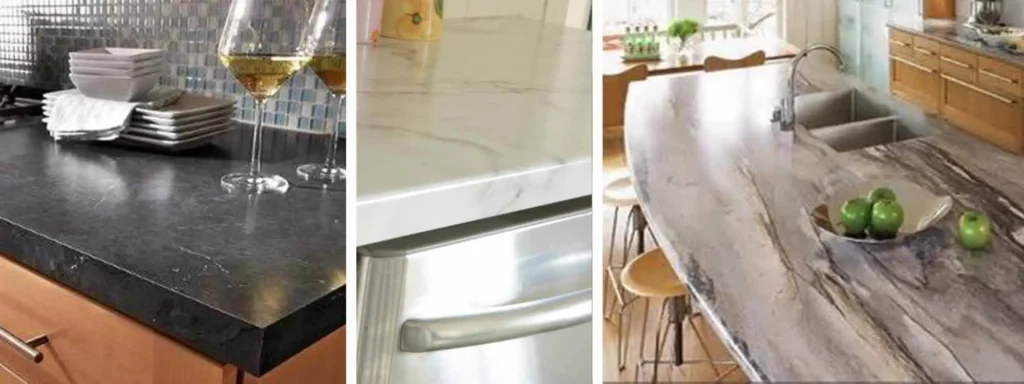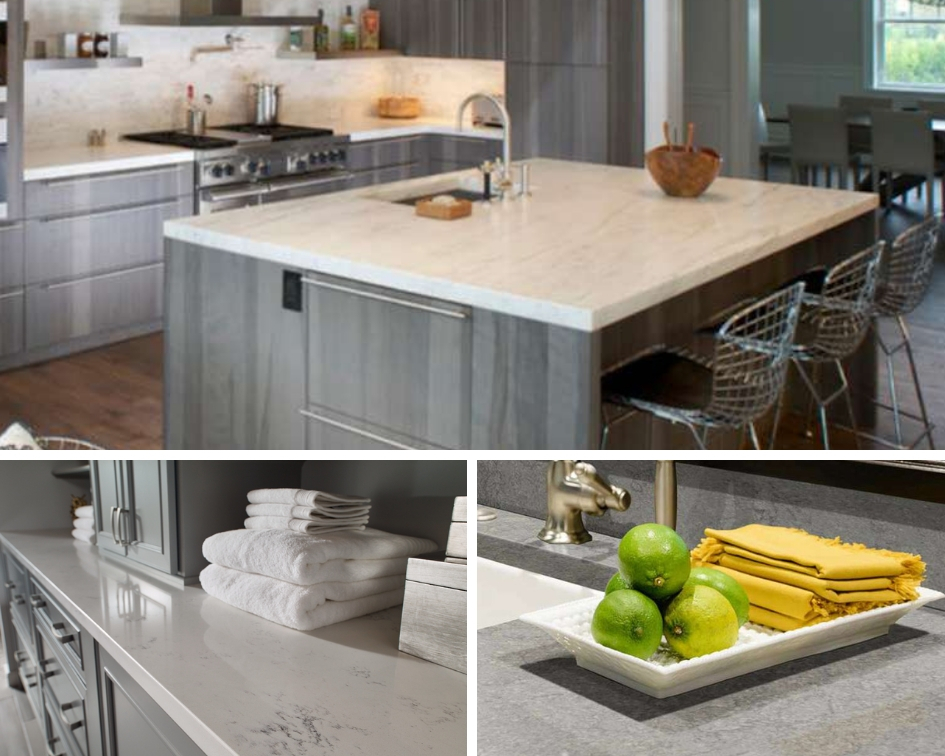When shopping for the perfect countertop material, homeowners are increasingly drawn to quartz countertops and for good reason. With their modern aesthetic, impressive durability, and wide range of design options, quartz has quickly become a favorite in both kitchens and bathrooms. One of the most frequently asked questions about this engineered surface is: Do quartz countertops need to be sealed?
This in-depth article explores the answer, including quartz’s composition, maintenance tips, and why sealing may or may not be necessary. We’ll also cover design trends like white quartz countertops, veined quartz countertops, and Calacatta quartz countertops—plus provide useful information on installation costs, suppliers, and more.

What Are Quartz Countertops?
To fully understand whether sealing is required, it helps to first grasp the basics of what quartz countertops actually are.
Quartz countertops are a form of engineered stone countertops, manufactured by blending around 90–95% ground natural quartz with resins, polymers, and pigments. This combination creates a non-porous, highly durable surface that mimics natural stone—but with added benefits.
👉 Learn more: What Are Quartz Countertops?

Do Quartz Countertops Need to Be Sealed?
The Quick Answer: No
Unlike granite and marble, quartz countertops do not need to be sealed. The resin used during manufacturing fills in any microscopic gaps in the stone, creating a dense, non-porous surface. This means no liquid or bacteria can seep in, which eliminates the need for traditional sealing methods.
👉 Also read: Do You Have to Seal Quartz Countertops?
Why Sealing Isn’t Necessary
Built-In Protection
The non-porous nature of quartz prevents water, wine, oils, and other common kitchen substances from being absorbed. Since quartz slabs already have built-in resistance, applying a sealant won’t enhance performance—it could even leave a sticky film or dull the surface.
Low Maintenance Appeal
For homeowners seeking low maintenance quartz countertops for busy families, quartz is the ideal option. There’s no annual sealing, polishing, or reapplication schedule—just simple cleaning and routine care.
👉 Thinking about it? Consider: Should You Seal Quartz Countertops?
Are There Any Exceptions?
Although most quartz surfaces require no sealing, here are a few situations where sealing might be considered:
- Inferior or low-quality quartz slabs that have micro-cracks.
- Exposed raw edges or non-factory finished sides.
- High-traffic commercial areas that may benefit from a protective coating (though not a traditional sealant).
Still, these cases are rare and typically resolved through proper fabrication and installation—not sealing.
Pros and Cons of Quartz Countertops
Advantages
- No sealing required
- Resistant to stains, mold, and bacteria
- Wide variety of styles like black quartz countertops, grey quartz countertops, and marble look quartz countertops
- Scratch-resistant
- Hygienic and food-safe
Disadvantages
- Sensitive to high heat (e.g., from pots and pans)
- More expensive than laminate or tile
- Less natural variation compared to granite or marble
Quartz vs Granite Countertops
| Feature | Quartz | Granite |
|---|---|---|
| Sealing Required | ❌ No | ✅ Yes, regularly |
| Porosity | Non-porous | Porous |
| Maintenance | Easy | Moderate |
| Heat Resistance | Moderate | High |
| Appearance | Consistent | Natural variation |
| Cost | Mid-to-High | Variable |
Interested in granite care?
👉 How to Clean Hard Water Stains on Granite Countertops?
👉 How to Clean Hard Water Stains on Granite Countertops?
Popular Quartz Countertop Styles
Quartz Kitchen Countertops
Quartz kitchen countertops are known for being both stylish and functional. From minimalist to farmhouse designs, quartz fits seamlessly into any kitchen style. Common picks include:
- Affordable white quartz countertops for modern kitchens
- Veined quartz countertops for a marble-like look
- Calacatta quartz countertops for luxurious appeal
Quartz Bathroom Countertops
Because of their water-resistant properties, quartz bathroom countertops are ideal for vanity tops, tub surrounds, and shower walls. The non-porous nature helps prevent mildew and soap scum buildup.
Need ideas? Check out the best types of quartz countertops for bathroom vanities when renovating.
How to Clean Quartz Countertops
Sealing may not be required, but cleaning is essential to keep quartz looking great:
Daily Maintenance
- Use warm water and a mild soap solution.
- Wipe with a soft cloth or non-abrasive sponge.
Stain Removal
- For dried-on stains, use a plastic scraper.
- Avoid bleach, ammonia, and harsh chemical cleaners.
- Never use abrasive pads that might dull the surface.
➡️ Want expert tips? See: How to Clean Quartz Countertops
Quartz Countertop Installation Cost
Pricing Breakdown
| Type | Cost per sq. ft. (Installed) |
|---|---|
| Budget quartz countertops | $50–$70 |
| Mid-range quartz | $70–$100 |
| High-end styles (e.g., Calacatta) | $100–$150+ |
Final pricing may include fabrication, edge profiles, cutouts for sinks or cooktops, and labor.
Looking locally? Try searching:
- Quartz countertops near me
- Quartz countertops in [city/region]
Finding Quartz Countertops and Installers
Where to Shop
- Quartz countertop showrooms allow you to see colors and textures in person.
- Local quartz countertop suppliers often carry in-stock slabs or remnant pieces for smaller projects.
Installation Help
For best results, hire custom quartz countertop installers who specialize in cutting and setting quartz for a perfect fit. Ask about warranty options and project timelines.
DIY Quartz Countertop Installation Tips
Thinking of going the DIY route? Here’s what to know:
- Accurate measurements are critical
- Use adhesives suitable for engineered stone
- Support the weight properly
- Handle seams with precision
DIY can save money but requires advanced tools and planning.
🛠️ For more: DIY quartz countertop installation tips
Are Quartz Countertops Worth It?
If you’re after a surface that combines elegance with practicality, quartz countertops are absolutely worth it. Their no-seal, low-maintenance nature makes them ideal for modern homes—especially kitchens and bathrooms that see daily use.
Key benefits include:
- No sealing
- Custom styles
- Long lifespan
- Hygienic surface
- Design flexibility
Whether you’re choosing grey quartz countertops for a contemporary bath or white quartz countertops for a light-filled kitchen, quartz delivers both beauty and performance.
Conclusion
So, do quartz countertops need to be sealed? The clear answer is no. Thanks to their non-porous, resin-filled structure, quartz surfaces are naturally resistant to stains, bacteria, and moisture. Unlike granite or marble, there’s no need to seal or reseal—making quartz a top choice for homeowners looking for elegant yet low-maintenance quartz countertops.
Explore where to buy high-quality quartz countertops, visit a local quartz countertop showroom, or connect with custom quartz countertop installers to bring your project to life.
Let quartz do the hard work—no sealing required.

